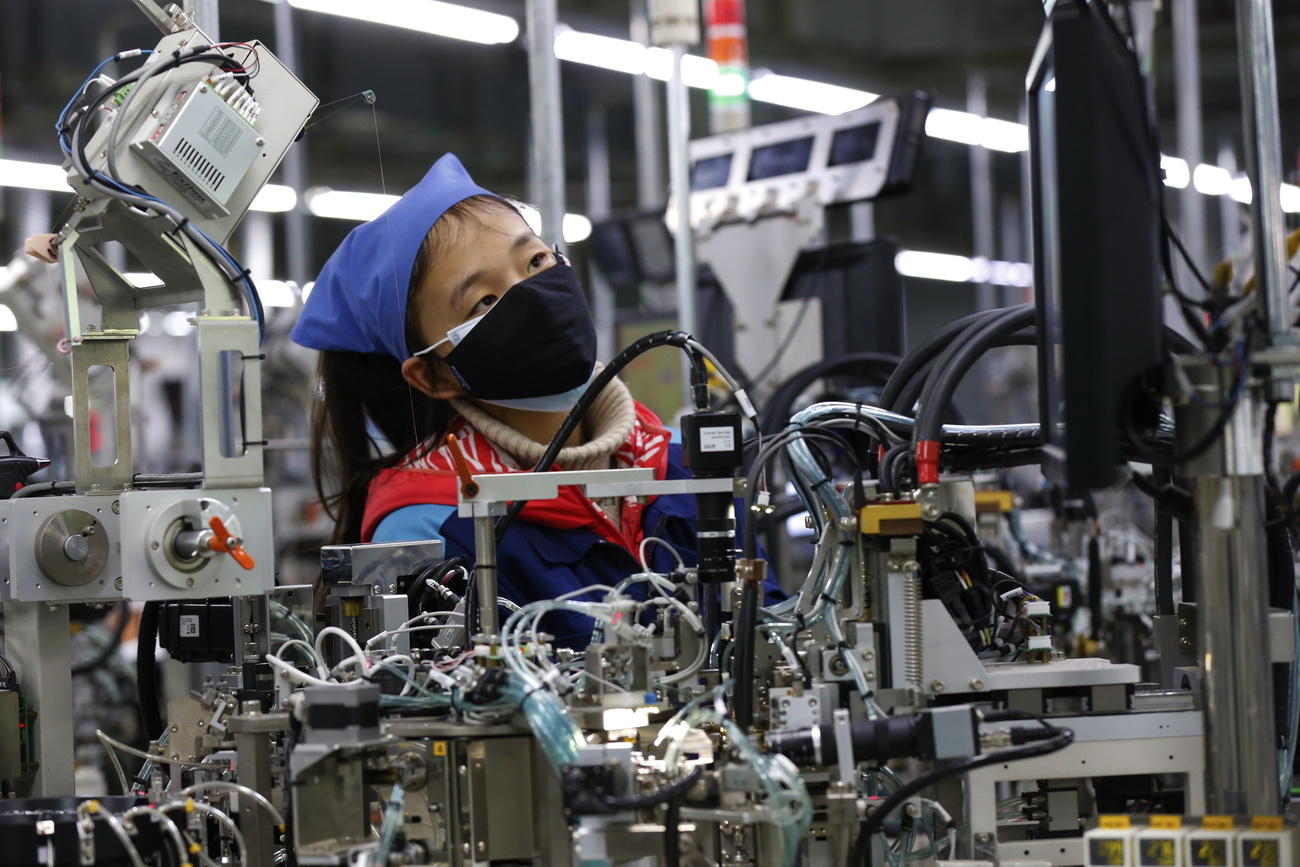
Chinese economic disruption hits Swiss supply chains

China’s sharp contraction in economic activity over the past month due to the coronavirus epidemic is sending shockwaves across the globe. Switzerland is one of the top ten countries exposed to Chinese supply disruptions, a United Nations report reveals.
Over the past month China, which has a central role in global supply chains, has seen a dramatic reduction in its manufacturing Purchasing Manager’s Index (PMI) – down to 35.7 from 50 in January, its lowest reading since 2004, according to the UN Conference on Trade and Development (UNCTAD). The 50-mark separates growth from contraction.
So far, this shrinkage in Chinese output has cost other countries and their industries around $50 billion (CHF47.8 billion), UNCTAD External linksaid on Wednesday.
At present, the most-affected economies, which rely heavily on Chinese parts and components to manufacture cars, cell phones, medical equipment, and other products, are the European Union (resulting in an estimated $15.6 billion in lost exports in February), the United States (-$5.7 billion), Japan (-$5.1 billion) and the Republic of Korea (-$3.8 billion).
UNCTAD ranked Switzerland tenth, with $1 billion in lost exports in February due to the China supply disruptions; chemicals, precision instruments and machinery are the most exposed sectors, UNCTAD said.
+ Swiss industries brace for impact of coronavirus outbreak
The State Secretariat for Economic Affairs (SECO) recently expressed concern in the medium term about the impact of the coronavirus on capital markets and the interruption of supply chains for Swiss industry and international corporations based in Switzerland. Swiss economics minister Guy Parmelin will host a crisis summit on the coronavirus on Thursday to discuss the impact of the virus with industry and social services agencies.
Global agencies, meanwhile, say that there will be a significant economic impact as the virus spreads. On Monday, the Organisation for Economic Cooperation and Development (OECD) said the coronavirus, which was first detected in China but has now spread to 60 nations in Europe, the US, Latin America and other parts of Asia, could cause the world economy to shrink this quarter for the first time since the international financial crisis more than a decade ago.
“Assuming that it is not mitigated in the short term the overall impact on the global economy is likely to be significant in terms of negative downturn. For developing countries, the impact of what’s happening in China will be felt very intensely,” UNCTAD Director of International Trade and Commodities Pamela Coke-Hamilton told reporters in Geneva on Wednesday.
The number of reported coronavirus cases worldwide has risen above 94,000, with the death toll exceeding 3,200. Most fatalities have been in China.
Meanwhile, the fall in industrial activity has had other effects. Nasa satellite images have shown a dramatic declineExternal link in pollution levels over China, which the US space agency believes is “partly related” to an economic slowdown due to the coronavirus.

More
Coronavirus: the situation in Switzerland

In compliance with the JTI standards
More: SWI swissinfo.ch certified by the Journalism Trust Initiative





























You can find an overview of ongoing debates with our journalists here . Please join us!
If you want to start a conversation about a topic raised in this article or want to report factual errors, email us at english@swissinfo.ch.